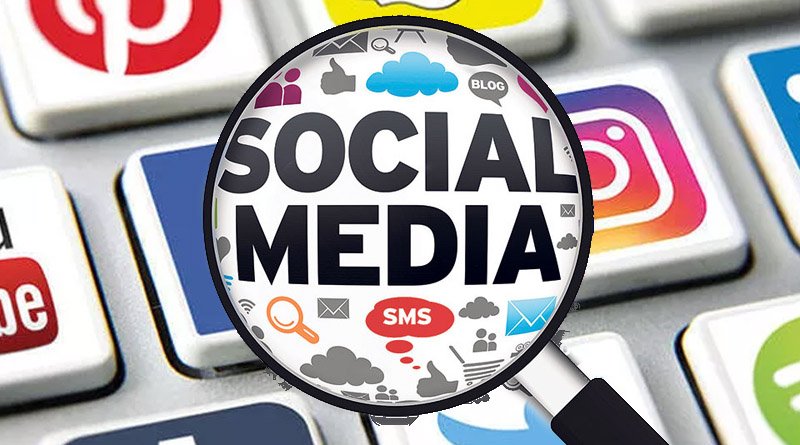Understanding the causes and consequences of social media addiction and taking steps to limit its impact can help us lead happier, healthier, and more fulfilling lives.

Social media has become an integral part of our daily lives. We use it to connect with friends and family, stay informed about current events, and even conduct business. However, for many people, social media has become an addiction that is difficult to break free from.
In this article, we will explore the causes and consequences of social media addiction and provide solutions for those looking to overcome this addiction.
The causes of social media addiction
There are several factors that contribute to this addiction. One of the most significant factors is social reinforcement. Social media platforms are designed to provide positive reinforcement through likes, comments, and followers.
When we receive positive feedback, our brains release dopamine, which creates feelings of pleasure and reward. Over time, this positive reinforcement can become addictive, leading to excessive social media use.
Another factor that contributes is the fear of missing out (FOMO). When we see our friends and family members posting about their lives on social media, we may feel like we are missing out on important events or experiences. This can create anxiety and stress, leading to a compulsive need to check social media regularly.
Cognitive biases also play a role in this type of addiction. Our brains are wired to seek out information that confirms our existing beliefs and biases, and social media algorithms are designed to provide us with content that reinforces our existing views. This can create an echo chamber that reinforces our biases and leads to excessive social media use.
Finally, neurochemistry also contributes to social media addiction. When we use social media, our brains release dopamine and other neurotransmitters that create feelings of pleasure and reward. Over time, our brains can become conditioned to seek out these pleasurable experiences, leading to addictive behaviour.
The Consequences of Social Media Addiction
Social media addiction can have serious consequences for our mental and physical health, as well as our relationships and productivity. One of the most significant consequences is the impact on mental health.
Excessive social media use has been linked to anxiety, depression, and poor self-esteem. It can also create feelings of loneliness and isolation as we substitute online connections for real-world relationships.
It can also have a negative impact on physical health. Spending long hours sitting in front of a screen can lead to poor posture, eye strain, and other physical ailments.
Additionally, excessive social media use has been linked to poor sleep quality, which can have a range of negative health consequences.
Another consequence is the impact on relationships. When we prioritise social media over real-world relationships, we may neglect important connections and miss out on opportunities for meaningful interactions. Additionally, excessive social media use can create conflict in relationships, as partners or friends may feel neglected or ignored.
Finally, it can have a negative impact on productivity. When we spend hours scrolling through social media feeds, we may neglect important tasks and responsibilities. This can lead to missed deadlines, poor work performance, and other negative outcomes.
The signs of social media addiction
If you’re concerned that you may be addicted to social media, there are several signs to look out for. One of the most common signs is obsessively checking social media accounts.
If you find yourself constantly refreshing your feeds or compulsively scrolling through posts, it may be a sign of addiction.
Another sign of social media addiction is prioritising social media over other activities. If you find yourself cancelling plans or neglecting hobbies in order to spend more time on social media, it may be a sign of addiction.
Difficulty cutting back on social media use is another sign of addiction. If you’ve tried to reduce your social media use in the past but find yourself returning to the same patterns of excessive use, it may be a sign that you have developed a dependency on social media.
Finally, experiencing negative consequences as a result of social media use is a clear sign of addiction. If you have experienced negative impacts on your mental health, physical health, relationships, or productivity as a result of excessive social media use, it may be time to seek help.
Solutions for Social Media addiction
If you are struggling with social media addiction, there are several steps you can take to overcome it. The first step is to acknowledge that you have a problem and make a commitment to change. This may involve setting goals for reducing your social media use or seeking support from friends or family members.
Another important step is to establish boundaries and limit your social media use. This may involve setting specific times of day for checking social media, turning off notifications, or using apps that track your social media use and help you stay within predetermined limits.
It is also important to prioritize real-world relationships and activities over social media. This may involve making plans with friends or family members, pursuing hobbies or interests, or engaging in physical exercise or other forms of self-care.
Finally, seeking professional help may be necessary for those struggling with severe social media addiction. This may involve seeking counselling or therapy to address underlying mental health issues or working with addiction specialists to develop a personalized treatment plan.
Conclusion
It is a growing problem in today’s society. While social media can provide many benefits, excessive use can have serious consequences for our mental and physical health, relationships, and productivity.
Understanding the causes and consequences of social media addiction and taking steps to limit its impact can help us lead happier, healthier, and more fulfilling lives. By establishing healthy boundaries and seeking support, when necessary, we can break free from the cycle of social media addiction and reclaim control over our lives.